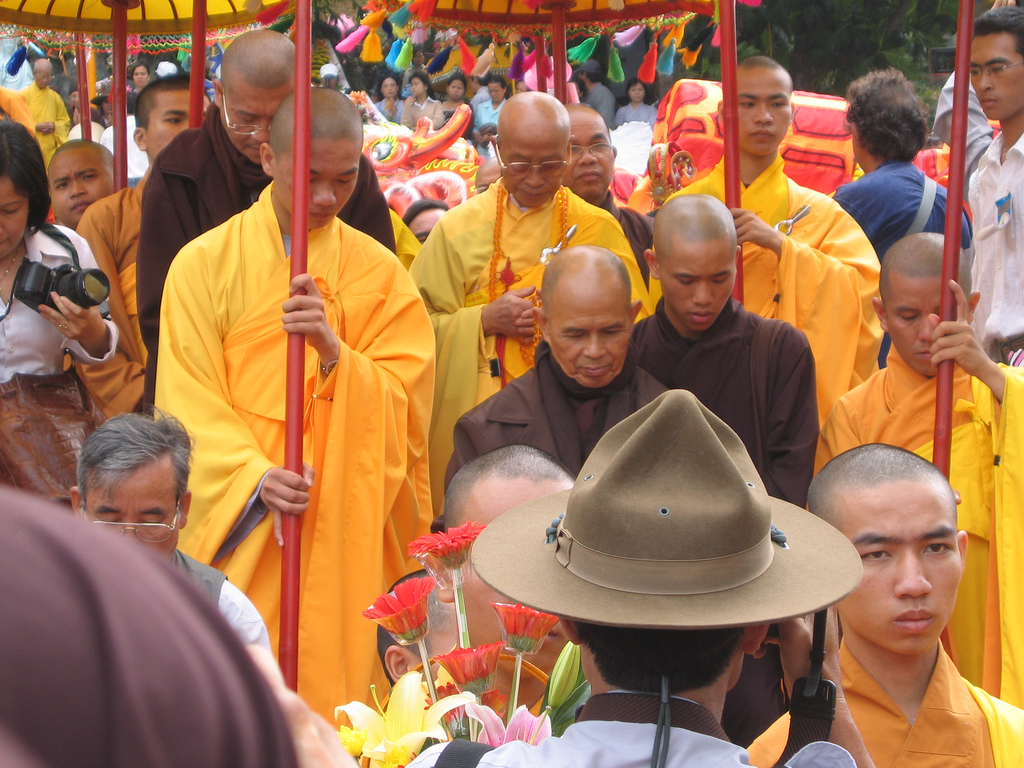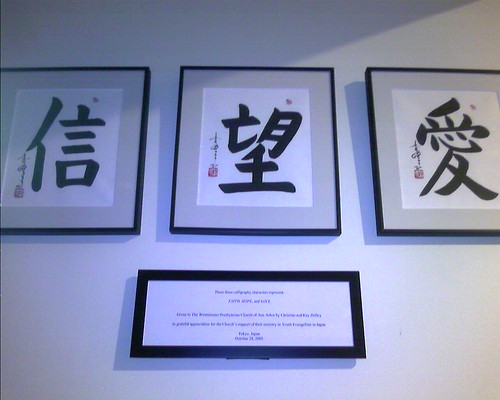
In response to a quote by Thich Nhat Hanh: "Anger and hatred are the materials from which hell is made. A mind without anger is cool, fresh, and sane." (Peace is Every Step), a friend of mine asked me, "Is anger always a bad thing?" The following was my written response:
When I see someone mistreat a dog, does it make me angry? Yes, it does. Is that bad? That question is really of no value because "bad" is too vague. Two better questions are, "What effect does my anger have?" and "What are the real causes of my anger?"
My anger has many effects, some of which are as follows: My heart and breathing rates increase; my mind races; my muscles shake due to the adrenaline surge; my stomach tightens. These effects are now causes of subsequent effects, some of which I'll list:
(1) Science has shown that adrenaline surges arising from anger, jealousy, fear, etc. have a different physiological effect than adrenaline arising from, say, playing a sport or an active game. The former are considered "bad stressors" that have a deleterious effect on our bodies, leading to classic signs of stress such as increased chances for a heart attack, etc. The latter do not have this effect on the body. So right there, we see one major long-term problem with the energy given us by anger.
(2) When my mind is racing, it is increasingly difficult for me to make well-thought-out, logical decisions. The more my mind races in anger, the harder it is for me to think straight (e.g., the proverbial "seeing red"). If I cannot think straight, I will make mistakes: I will misinterpret phenomena, I will say and/or do things I should not (things that are unnecessarily harmful to others and myself), I will rush decisions and actions, etc. I feel very safe in stating--from my very own personal experience--that any good decision I make while angry is solely the product of luck, and sometimes a product of me being able to slow myself down enough to actually think through what I am about to say or do. I have never, not once in my life, made a decision or performed an action out of anger that I have anger to thank for it.
A common rebuttal to this is that anger gives you energy and the ability to do things like escape captors, etc. I disagree completely. The energy anger gives you was available to you all along; and if you're a prisoner of some sort, and the chance comes for escape, you don't need anger to supply that energy--it should be there as a function of other emotions and instincts such as the will to survive. The most inspiring thing I've read is a story of a Tibetan monk that was imprisoned and tortured for years in a Chinese prison.
Returning to my example about somebody mistreating a dog, the effects I get from anger do not, in any way, help me to help that dog. Responding out of anger at the person or action results in nothing better than responding out of compassion for the dog, and the anger can only result in me making bad decisions in the process of trying to help. So, just on the basis of analyzing its effects, anger is almost self-evidently harmful.
Now let's discuss "the real causes of my anger." Why am I angry at the person or the action instead of feeling compassion for the dog? (in reality, I feel both, but in this example, the anger response is more powerful, more in the forefront) Anger comes out first or more powerfully than compassion if I have sown its seeds in my past more often than I have compassion. Every single time I respond with anger, I sow its seeds in my mind. Each time I do so, that makes it easier for me to respond in anger next time. So, a major cause of why I'm responding in anger is because I have done so before! What solution is there to this self-generating behavior? Mindfulness. If I first calm my anger (because, as we've discussed, I can't think clearly while angry), and then examine it with focused mindfulness, I can begin to see anger's real cause: I'm angry at the person or his actions because I'm unable to see or understand the real causes for his behavior. Maybe he is mentally disturbed, in which case it's not entirely his fault. Maybe he was beaten as a child and this is his learned response. Maybe he's just had a bad day and is taking it out on his dog. None of those justify his behavior! But if my initial reaction were to see that he is harming the dog due to causes in his life that I do not know, then I can respond to him out of compassion for him, and anger has no need to surface and cause all the harmful effects we've already discussed! This compassion generates the same amount of energy as anger, and I am not hindered by anger's harmful effects, and as a side-bonus, I am generating seeds of compassion, which will make compassion more likely to arise in the future! In this way, I can help the dog just as effectively without anger.
This response wouldn't be complete if I didn't touch on the fact that anger has obviously played a role in our survival as a species, hence why such an emotion evolved in the first place. In humanity's early years, survival was predominantly a factor of responding to immediate environmental threats. I don't deny in the least that the adrenaline provided by anger is immediate--faster than most other emotions. But that just goes to show what its value was--when we were about to be taken down by a predator, a flash of anger facilitated our fight or flight response. However, as our civilizations developed, this type of danger has become much less common, and while it might be useful to generate anger in a pure fight-or-flight situation, in anything that requires any semblance of strategic thought (such as fighting in the military!), anger is more of a detriment than a help.
One more situation to touch on before I sign off: that of seeing one's loved ones harmed. This is probably the easiest situation in which to justify anger. If my wife was harmed, would I get angry? Yes! However, I feel that an analysis of anger makes it obvious that such a response is not only harmful, but unnecessary. If she were in danger, there is absolutely no reason whatsoever for me to be angry at the person endangering her. The most important thing is to get her to safety and neutralize the danger. As I said before, if pure fight-or-flight was all that was needed, then perhaps generating anger would be the fastest way to go about it. But if any sort of thought is required, such as handling a delicate situation of being held at gunpoint, anger is probably the worst emotion you could possibly experience at that time. Once she's out of danger, then shouldn't I be angry at the person? No. The person deserves to be punished in whatever way our justice system determines, for the safety of society. But me being angry at the person is only reflective of one thing: my lack of insight into the causes of his behavior. As that Tibetan monk illustrated, compassion is still the ideal response, and one that I hope my practice will develop as my primary response in this lifetime.















